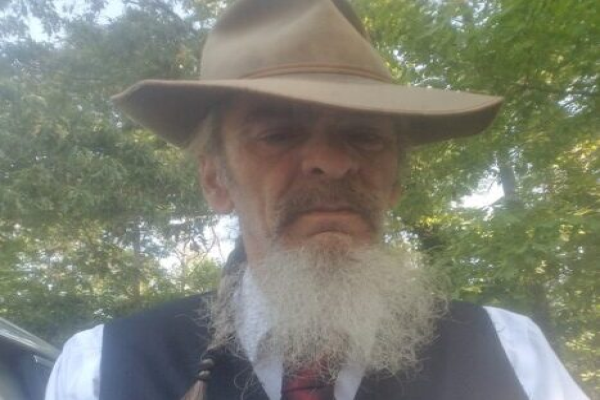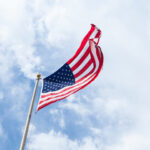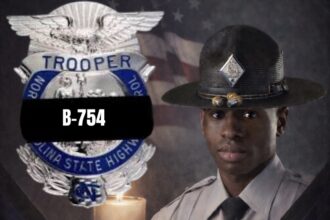Note—Many folks forget that Veteran’s Day is the descendant of Armistice Day, when World War I, the “war to end all wars,” officially ended. At the request of a more modern veteran, I offer this column, slightly updated from its first publication in 2008.
Rest easy, Mister Jimmy.
He was a bent little old man who sometimes smelled bad, possibly because he often wore three heavy coats, even in summertime, and had many cats.
“So cold,” Mr. Jimmy used to say when he shuffled past the bike rack by the soda fountain. “So cold.”
Jimmy muttered to himself as he walked, pale face bent under a disreputable tweed hat, rheumy eyes always seeming to cry. Sometimes he did cry as he shuffled along, but more often he just talked as we sat at the barbershop.
Little kids were supposed to sit at the end of the row of seats while their fathers talked of politics and problems and the possibility of the mill closing down. For reasons I never knew, Mr. Jimmy oftentimes sat down there in the kid’s area, talking to himself about places we’d never heard of.
Mr. Jimmy fought in the First World War, what his generation called the World War, since it was all supposed to be over after that one. Of course, warfare didn’t come to a permanent end on Nov. 11, 1918. Human beings are by their very nature contentious and we will fight, sometimes for the silliest reasons, oftentimes for the best.
I was fascinated with that war, since my grandfather survived it and since little boys are often fascinated with any war.
I never met my grandfather, my father’s namesake. Family history says he was a private, then rapidly became a corporal, then a sergeant in the “Engineers,” as the first armored troops were called. For some reason, his tombstone at Arlington Cemetery demotes him to a corporal.
W. Thomas Weaver II went to war for the adventure and because it was his patriotic duty. He was shot, gassed, badly burned, hit by shrapnel, and stuck in flooded trenches with the infantry when his tank broke down. He survived all that just so he could come home to see his now-toddling firstborn son – and get run over by a trolley car less than a year after coming home. I sincerely hope Grandfather Tom had a sense of irony.
My grandfather was a fairly good letter writer, and I’ve been fortunate enough to read some of his letters home to Grandmother. I’m reasonably sure Aunt Ellie edited that letter collection far more effectively than any government censor, but I’ve read enough to know he passionately loved my grandmother, his son Tom, and his country. I saw the first of those letters when I was eight or nine, and immediately wanted to know more about that war.
When I found out Mr. Jimmy was in that war, I wanted to him to talk.
I tried sometimes to ask Mr. Jimmy where he fought and when – young children have little if any sensitivity to such things – but he never really understood what I was saying, or else I couldn’t understand his answer. Mr. Jimmy’s brother told me Jimmy fought the “Huns” at Belleau Wood, Chateau-Thierry, and other places with similarly outlandish names. Honestly I am not sure his brother knew for sure.
The brother was a World War II vet, like many of the patrons of Uncle Rip’s barber shop (including Uncle Rip), and it never took much to get them to talk about their experiences. The Korean War vets were much the same way, although I well remember the haunted look in Mr. Sam’s eyes when someone noticed a story Papa had written and asked Mr. Sam, “Were you there?”
Mr. Jimmy left his home in a booming milltown, lied about his age, and went off to war. There was a camp picture of him which I saw after his funeral, a dapper young soldier in his pressed uniform, stiff Sam Browne belt, and campaign hat cocked at the rakish angle affected by so many “Doughboys” of that era.
He came home hurt and sick from gas and – different.
Mr. Jimmy didn’t marry the girl he left behind, but he apparently had a sort-of-a-girlfriend in France. A couple of pre-adolescent boys were enthralled with a story about his “Frenchy” girl one morning until someone’s daddy interrupted the story just before he got to the “good part.” After that, our fathers learned to pay a little more attention to what Jimmy was talking about when he had one of his good days. I know we boys did.
Jimmy died on his front porch on a hot summer day, a funny little old man wearing three coats and a ragged hat. He was surrounded by the cats he loved. Mr. Jimmy liked to sit in the sunshine with his cats.
I first recalled Mr. Jimmy several years back when my sister’s telephone called and said my nephew John was home; John Thomas Naquin served in both Iraq and Afghanistan. He was wounded in combat, watched friends die and get crippled, and saw things young men should never have to see.
John was a special case, you see, because he was originally medically discharged from the Navy, and fought like a tiger to rejoin the service after Sept. 11, 2001.
Like Mister Jimmy, like my grandfather, like John’s father, grandfather and great-grandfather, John loves his country and is proud to have served it overseas. He is proud that he could play a part in giving the people of another country the rights he has always been able to enjoy. He too was frustrated and angered when all they worked for was thrown away by the politicians.
Unlike Jimmy and many before him, John has a network of everything from peer counselors to professional therapists if things come back to haunt him in the night. He also has a big, close-knit family with many relatives, some of whom truly understand what he went through.
What I think John deserves most, though, is something his grandfather didn’t get when he returned from Vietnam, and what his great-grandfather didn’t receive enough of after World War II – a word of thanks.
A few years back, I had the honor to publish a series on the 50th anniversary of the start of the Vietnam conflict. In addition to being awestruck by the stories so many veterans told us, I became angry. Unlike their predecessors, so many Vietnam vets never got a simple thank you. Now the veterans of Korea are finally getting a little of the spotlight they so desperately deserve as well. It’s about time.
I am angered and ashamed when I hear the talking heads on television insulting the efforts of my nephew and others like him; Iraq and Afghanistan were entirely different from Vietnam, yet I hear much of the same garbage that was thrown around 40 years ago.
I hope we can stop and think for a minute that we wouldn’t have the rights we do if it weren’t for a bigger country coming in to help us throw off a repressive regime, 250 years back.
I hope people will stop and realize that the blame for whatever mistakes were made in going to war overseas isn’t the fault of the soldiers.
I hope that you will take a minute to find a Mr. Jimmy or a Mr. Sam or a Miss Elsie or a John Thomas, and say thank you.
That’s what Veteran’s Day is about: not a day off for government workers, but a day to remember when the guns went silent, the horror stopped for a while, and America was still a great country, defended by those folks we simply call veterans.
To all who served, wherever and however, thank you.








